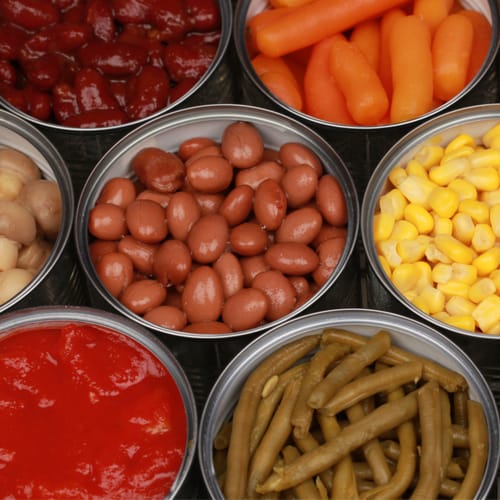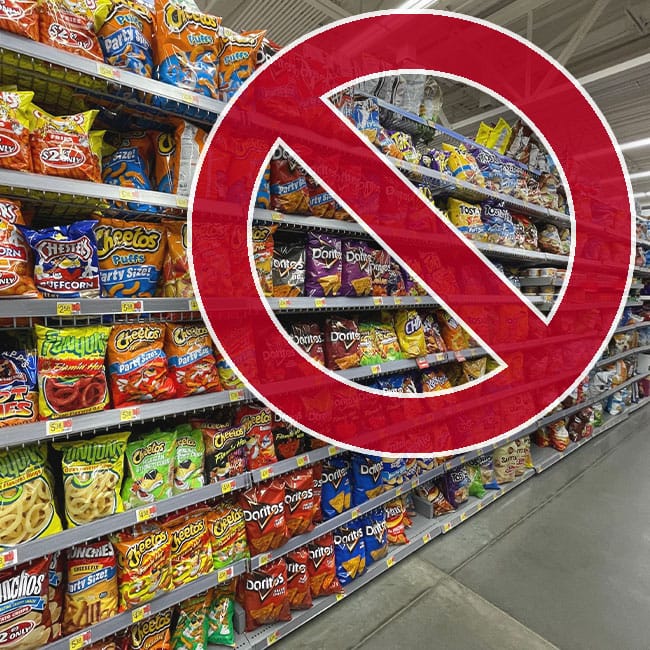This is an archived article and the information in the story may be outdated. Please check the time stamp on the story to see when it was updated last.
Although it may be tempting to stock up your pantry with canned foods, especially if it looks like another lockdown is coming, there are some downsides to these packaged pantry foods that are important to keep in mind.
Canned foods may contain preservatives that could have detrimental effects on your body. Plus, there are some packaging materials that may also affect the overall health of your canned food product.
Keep reading for more details.


Rebecca Fuoco, MPH and spokesperson for Green Science Policy Institute, explains, "Harmful chemicals called bisphenols are present in the epoxy resin liners of some aluminum cans. Even at low levels, bisphenols can mimic or block hormones."
She adds, "Canned foods labelled 'BPA-free' aren't necessarily safe because BPA is often just replaced with Bisphenol S (BPS) and Bisphenol F (BPF), which appear to have similar hormone-disrupting effects."

That's not the only issue that canned foods can cause.
According to Eat This, Not That!, canned foods also contain preservatives and large amounts of sodium, which can lead to other health problems.
Arielle Kestenbaum, RD, CDN, tells them, "Too much sodium can cause negative effects on blood pressure and other heart-related conditions, and may also lead to water retention that may cause swelling."

With that in mind, choosing low-sodium or heart-healthy canned foods is a smart idea.
To be extra careful, read the full ingredient list before purchasing any canned foods to understand exactly what you are eating and get a better idea of how it may impact your body.

Although there are ways to choose healthier canned foods, it still is probably a better idea to focus on incorporating more fresh foods in your diet, especially with these potential health risks in mind.


























